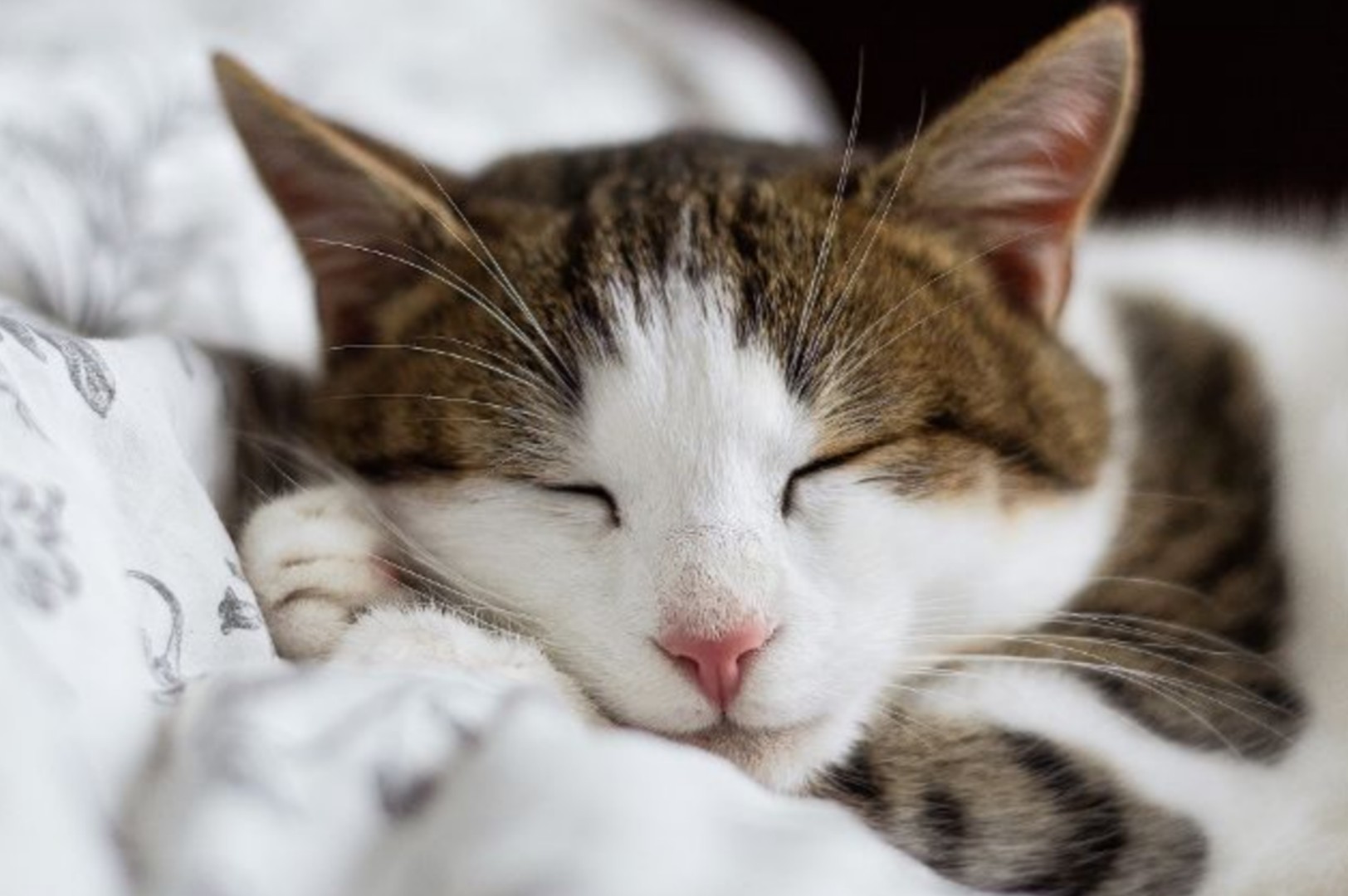If your pet cat suffers from sneezing and tears profuse with red eyes, she may have herpesvirus, but there is not much concern for her, as things are fine.
What is herpes?
Herpes in cats, a viral disease and one of the most common causes of upper respiratory diseases in cats, is also called a common cold due to the similarity of its symptoms to common cold.
It is very contagious and rapidly spreading, so it spreads easily in places where cats gather. Feline rhinotrachitis is also called feline rhinotrachitis.
How does herpes infection happen to cats?
The disease is caused by infection with the Feline Herpesvirus 1 - FHV1. The infection is transmitted by direct contact with healthy cats with the secretions of the nose or eyes of cats infected with the herpes virus, or indirect contact through eating dishes and sand.
All types of cats of all ages are susceptible to infection with the herpes virus, but young cats are most vulnerable to the disease, and infection can occur from the fifth week of life.
Note
Pregnant cats who are also immunocompromised are susceptible to infection, and a pregnant cat who carries the disease may also transmit it to the fetuses in the womb.
The spread of the disease is common in cat populations, in homes with more than one cat, and in chatters and farms.
Poor ventilation conditions, lack of nutrition, lack of hygiene, health and psychological pressures on cats are all factors that help increase the chances of contracting the disease.
Is feline herpes contagious to humans or dogs? Oh my God
The infection is not transmitted to humans or dogs. Feline herpes is different in nature and cause than human herpes, and cats also do not become infected with human herpes types.
Symptoms of herpes in my pet cat
Some infected cats remain asymptomatic, and they become carriers of the virus and infect other cats. The symptoms of herpes are very similar to those of kales in cats in the early stages of the disease:
Sudden bouts of sneezing, runny nose, nasal secretions, which may be watery or pus.
Diagnosing the herpes virus in my pet cat
A history of disease progression and the appearance of symptoms is important to the veterinarian in diagnosis. Physical examination of the cat’s body, and examination of the efficiency of various body systems. The veterinarian may perform some tests and analyzes, such as blood chemistry analysis, blood chemistry, and urine analysis. Sometimes there is a decrease in the level of white blood cells followed by a rise in the number after that.
Do a herpes virus test on eye or nose secretions. X-rays to detect changes in the nasal cavity, especially in chronic cases.
Treating the herpes virus in my cat
Sometimes it is not necessary to treat with medication in the event of only mild bouts of sneezing, and follow-up to the affected cats only to notice the development of symptoms.
Broad-spectrum antibiotics to treat or prevent secondary bacterial infections.
It is important to remove the pressures or catalysts that cause the immune system to weaken the response of the body, and to provide complete comfort away from other animals and children, and places that are crowded with movement.
Isolation of infected cats is necessary to avoid transmitting the infection to healthy cats as much as possible. Reducing the effort of the body by placing the sand dish and eating and drinking dishes close to where the cat is resting.
Not leaving the cat alone for long periods. Continuously monitor the state of breathing, and inform the veterinarian if symptoms of breathing difficulties appear. Constantly providing water, providing nutrition that is easy to digest and contains high calories.
Death cases
Sometimes it occurs due to lack of nutrition or dehydration, in the event that the cat stops eating, refer to the veterinarian immediately.
The chances of treating the disease are very good if the secondary bacterial infection is controlled and dehydration is prevented, and treatment usually continues for a period of 7 to 10 days.
Prevention of the herpes virus in cats
The main protection is vaccination against herpes. Be sure to complete the vaccination schedules on the advice of your veterinarian. Isolate the affected cats if there are other cats in the house.
Preventing factors that cause stress on cats before completing vaccinations, such as sudden changes in the surrounding environment, changing homes, bathing kittens before vaccinations.

Comments
Post a Comment